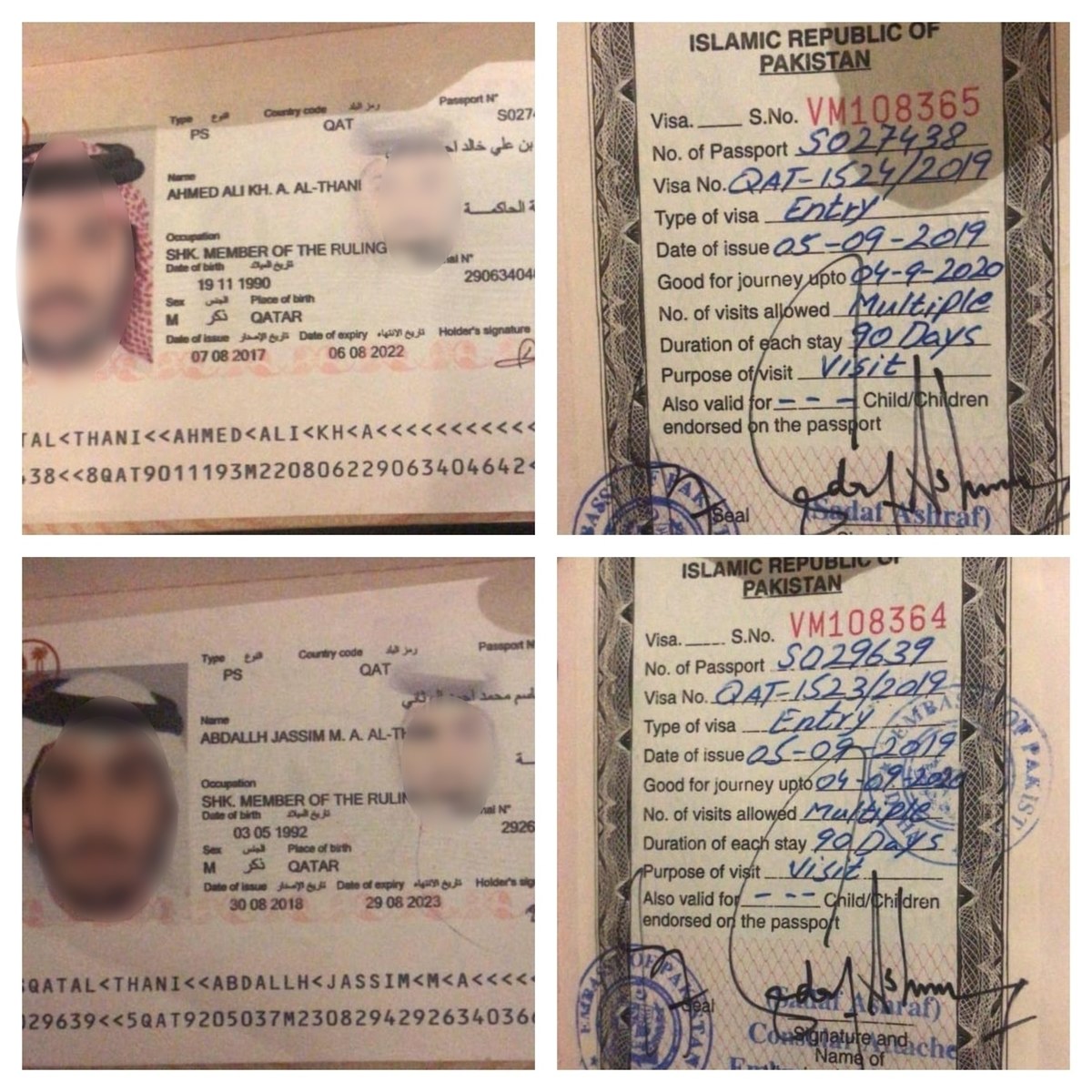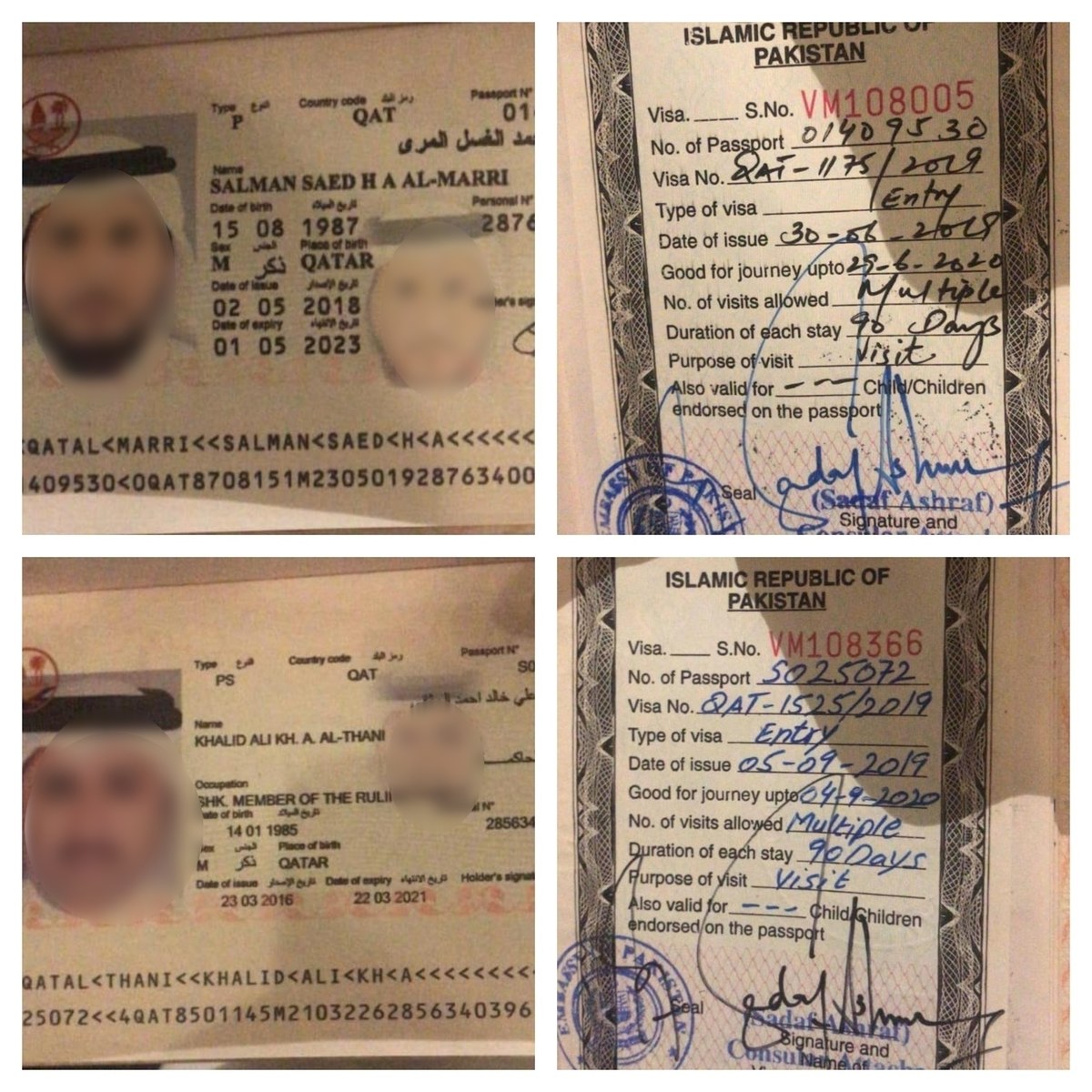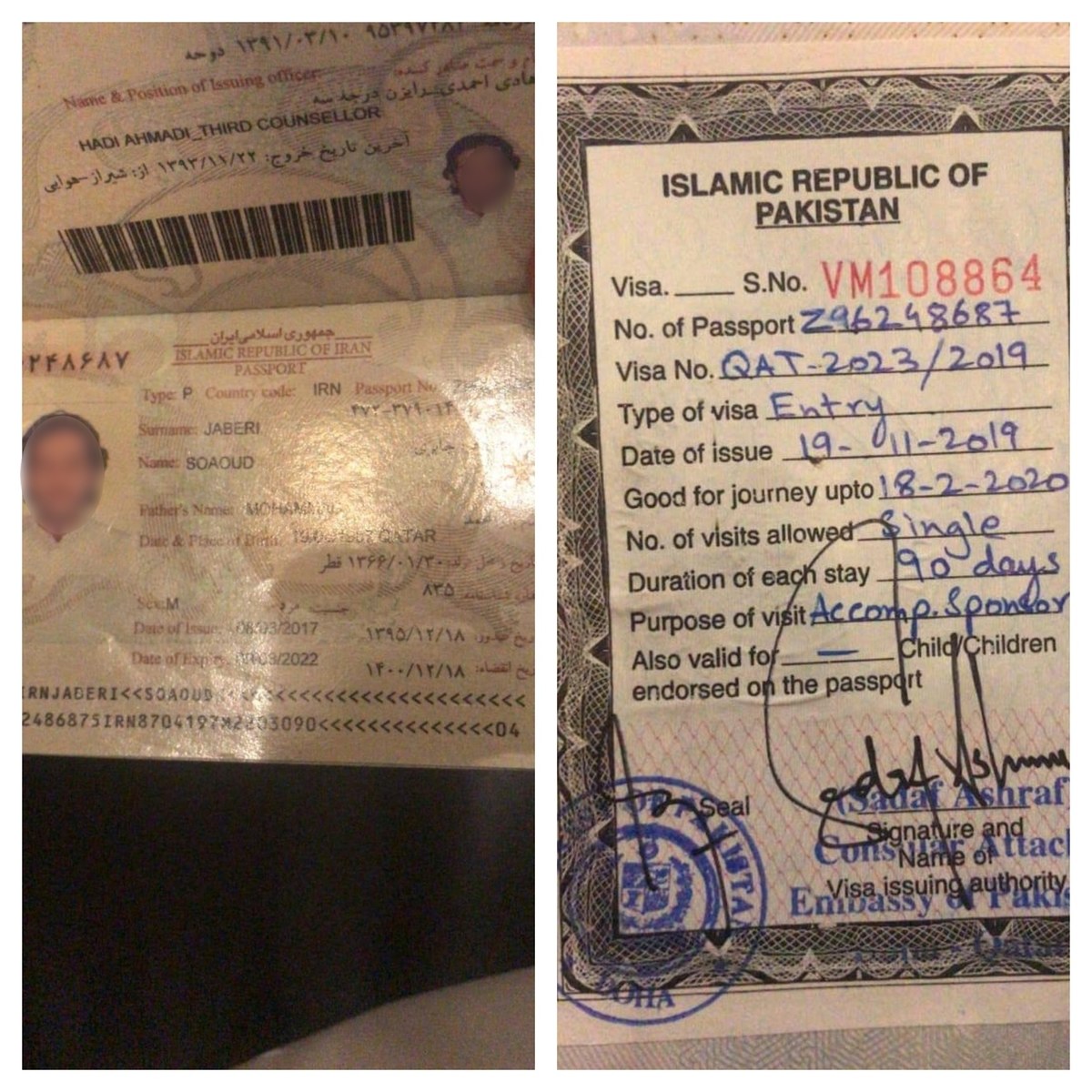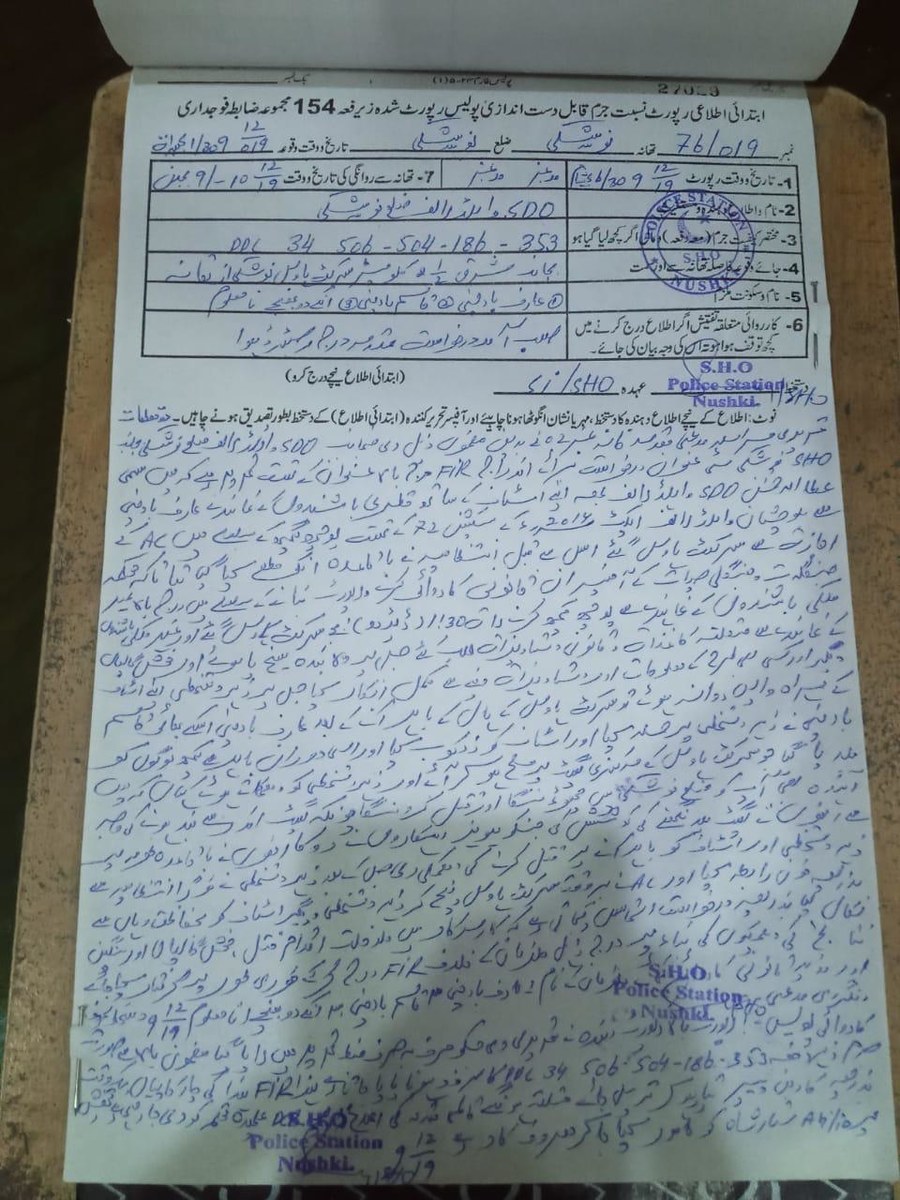KARACHI: Pakistani authorities have arrested an Iranian and six Qatari nationals in Balochistan on illegal hunting charges, a wildlife official said on Tuesday.
The accused, including four members of Qatar’s royal family, were apprehended at the Galangoor check post in the Nushki area of southwestern Balochistan province.

An FIR lodged against six Qataris and one Iranian for illegal hunting in Nushki, Balochistan, Dec. 9, 2019. (Copy supplied)
Deputy Commissioner of Nushki, Abdul Razzaq, said the Qatari citizens were traveling without a no-objection certificate (NOC) and had been shifted to the district circuit house after the arrest.
“The wildlife officials took the foreigners into custody as they were found in the hunting area without permission,” an official of the Forest and Wildlife Department, told Arab News, adding the Qataris were first spotted in a four-star hotel in Quetta but told the authorities they had no plans to go for hunting.

An FIR lodged against six Qataris and one Iranian for illegal hunting in Nushki, Balochistan, Dec. 9, 2019. (Copy supplied)
“They were warned that hunting is not allowed without permission,” he said.
The official said the wildlife department kept a vigilant eye on the Qataris, sensing an illegal hunting attempt.

An FIR lodged against six Qataris and one Iranian for illegal hunting in Nushki, Balochistan, Dec. 9, 2019. (Copy supplied)
“The accused have been booked and investigations are being launched,” the official said.
According to official documents seen by Arab News, the accused include four members of the Qatari royal family: Abdullah Jassim M. A. Al-Thani, Ahmed Ali Kh. Al-Thani, Mohammad Mansoor M. J. Al-Thani, and Khalid Ali Kh. A. Al-Thani. The other two Qataris have been identified as Salim Hadban H. S. Alfasal and Salman Saed H. A. Al-Marri, whereas the Iranian citizen is Soaoud Jaberi.

An FIR lodged against six Qataris and one Iranian for illegal hunting in Nushki, Balochistan, Dec. 9, 2019. (Copy supplied)
The foreigners have been charged with violating the 2014 Balochistan Wildlife Protection Act.
A separate FIR has been lodged against their local agents. According to the FIR registered with the Nushki Police, when wildlife official Ata-ur-Rehman arrived at the circuit house to interrogate the foreigners, their agents Arif Badini, Qasim Badini, and two unknown men assaulted him.

An FIR lodged against local agents for manhandling and attacking a wildlife official in Nushki, Balochistan, Dec. 9, 2019 . (Copy supplied)
A few months ago, two Qatari nationals were arrested for illegal hunting in the Chaghi district, also in Balochistan.
In December 2017, 12 people, including four Qatari nationals, were arrested for illegal hunting in Nushki.
According to the wildlife department, the provincial government has fixed a fee of $100,000 for hunting 100 houbara bustards, and $1,000 for hunting one falcon. Currently, permissions have been granted to 18 hunting parties from Saudi Arabia, the United Arab Emirates, and Qatar to hunt the houbara bustard and other fowl species.
















